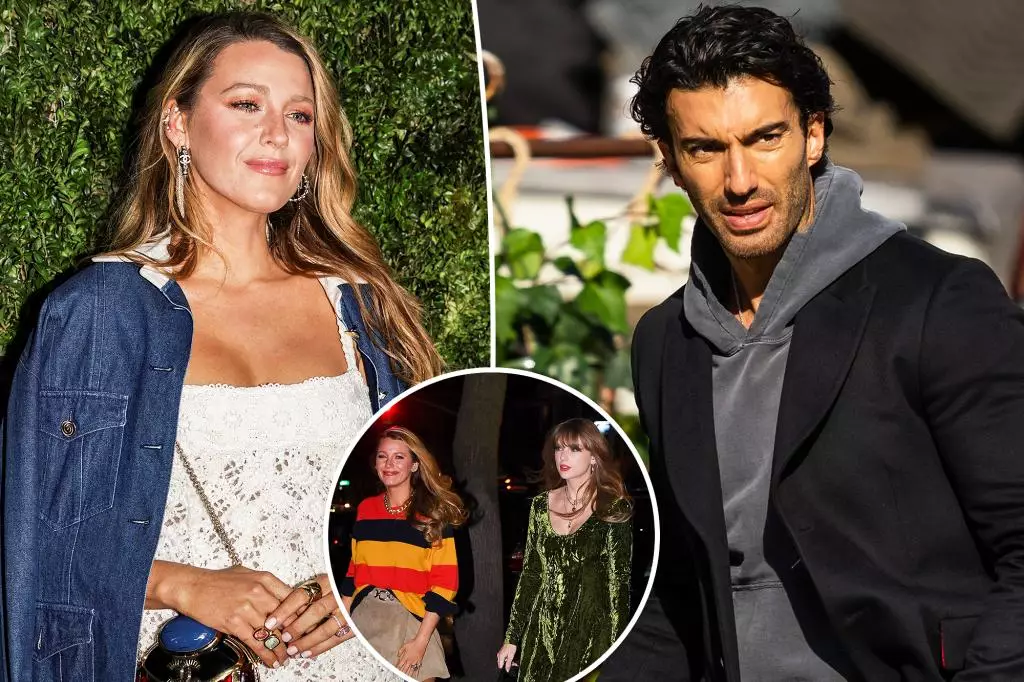In the realm of celebrity drama, few stories have captivated audiences quite like the ongoing legal skirmish between Blake Lively and Justin Baldoni. The recent developments, where Lively petitioned for a “protective order” to block Baldoni from accessing her private communications with Taylor Swift, reveal much more than mere legal intricacies. They reflect a larger narrative about media manipulation, celebrity friendships, and the lengths to which public figures go to either maintain or reclaim their narratives in the public eye.
The court proceedings, presided over by Judge Lewis J. Liman, serve as a backdrop for a conflict that seems to be as much about personal vendettas as it is about legal obligations. Lively’s legal filings paint a picture of Baldoni’s tactics as being strategically aimed at leveraging the immense popularity of Swift—a move that, if we’re honest, borders on exploitative. Not only does this request speak to Lively’s desire for privacy, it also highlights a worrying trend in celebrity culture where legal disputes become public spectacles, often dragging innocent parties into the fray for the sake of gaining an upper hand.
The Tactic of Celebrity Involvement
Lively’s assertion that her communications with Swift are “not central” to her complaint raises pertinent questions about the ethics of involving third parties in battles that are inherently personal and private. The assertion also underscores an unsettling reality: in an age where branding is king, the value of a celebrity’s friendship can be weaponized as leverage in legal disputes. This strategy harks back to long-standing practices in public relations, where the stakes are amplified by the degree of publicity involved.
Baldoni’s initial introduction of Swift into this legal quagmire, including his claims about her presence at critical meetings, potentially reveals a desperation to shore up his position in a dispute that could define his career moving forward. We live in a culture obsessed with celebrity narratives, where even the faintest mention of a name like Taylor Swift can sway public perception and garner attention. Lively’s team’s assertion that Baldoni and his production company are merely using Swift as part of a broader media strategy raises valid concerns about the ethics of dragging someone into a crossfire they did not choose.
A Defense of Privacy and Personal Boundaries
In her filings, Lively has reiterated the importance of protecting her personal communications—not just from a legal standpoint, but from a human one. It’s one thing for celebrities to engage with the public as part of their work; it’s quite another to see their personal lives exploited as collateral damage in an ongoing feud. By seeking this order, Lively isn’t just defending her own boundaries; she’s advocating for the sanctity of friendships that thrive in relative privacy. The fact that she is proactive about shielding her conversations with Swift suggests a commitment not only to maintaining her own privacy but also to safeguarding her friendship from being exploited for legal advantage.
The argument made by Lively’s representatives—that Baldoni’s team has already “gotten all they needed” before dropping their subpoenas—points to a potential overreach on Baldoni’s part. This could indicate a trend where the emotional fallout of such aggressive legal actions is ignored in favor of a hard-nosed approach to gaining leverage. In such cases, the emotional toll on the individuals involved is often sidelined, raising concerns about the human elements that are so often eclipsed by procedural maneuvers.
An Ominous Precedent for Future Legal Entanglements
The dismissal of Baldoni’s legal claims against Lively and others marks a definitive moment in this saga. Elements of the case, particularly the failed $250 million libel suit against the New York Times, highlight the possible pitfalls of employing sensationalist tactics in legal battles. The court’s decision underscored that the pursuit of fame does not grant one immunity from accountability.
As the saga between Lively and Baldoni continues, it begs examination about what precedent this sets for future legal skirmishes in the celebrity realm. If the narrative becomes entrenched that one can exploit relationships and public personas for legal advantage, the consequences could ripple far beyond individual cases. The integrity of personal relationships, particularly among public figures, risks being jeopardized, creating an environment where friendships may become transactional rather than authentic.
The trial, now set for March 2026, may very well validate or challenge the tactics being wielded in this high-profile feud. As we watch this drama unfold, one has to wonder: will this incident serve as a cautionary tale or reinforce the notion that in the world of fame, everything—including friendship—is fair game?


Leave a Reply